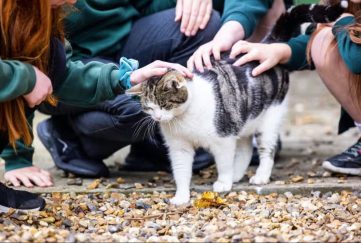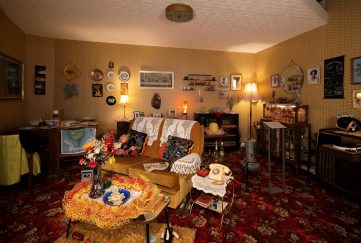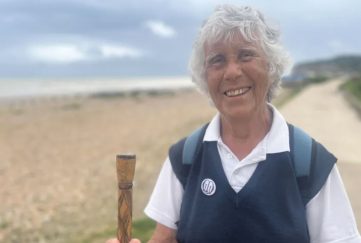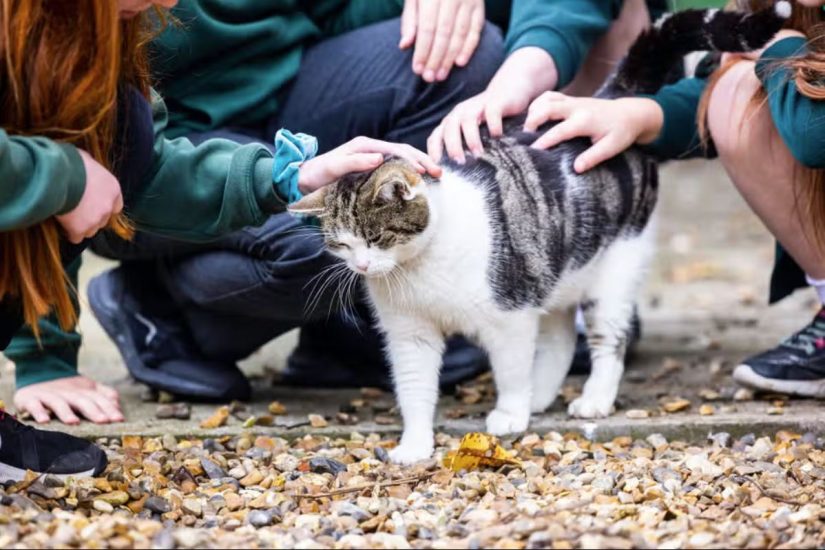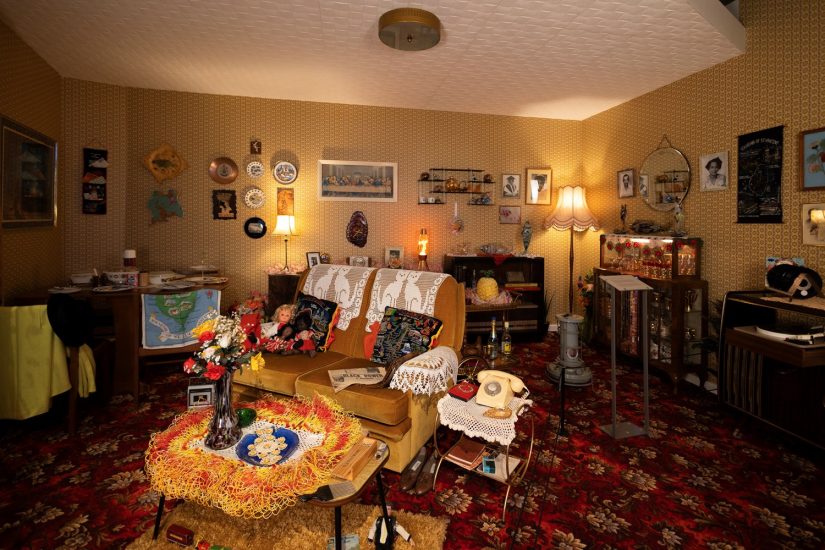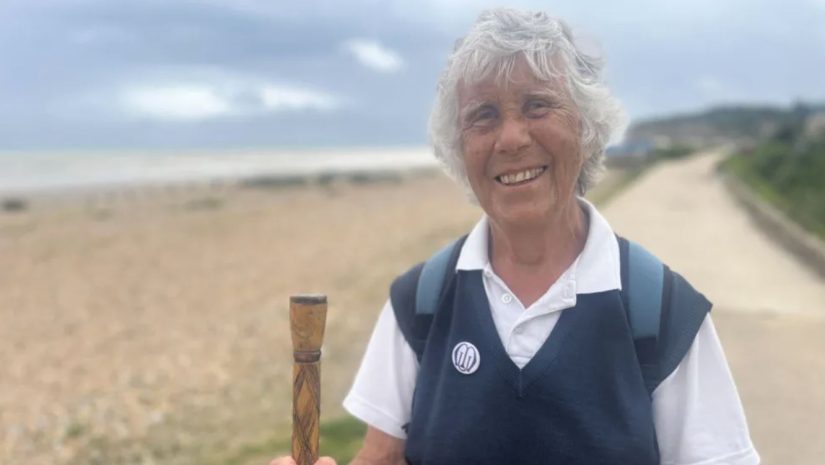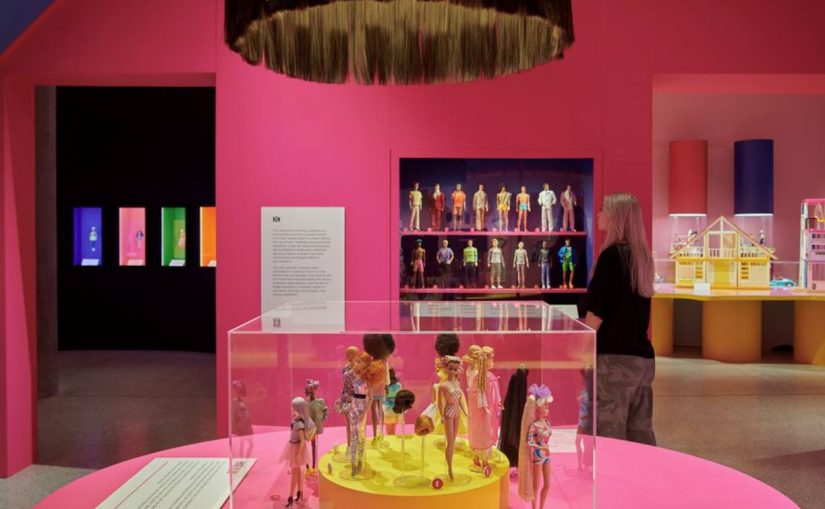The Defence Of The Pass: A Story Of The Cuban Forest
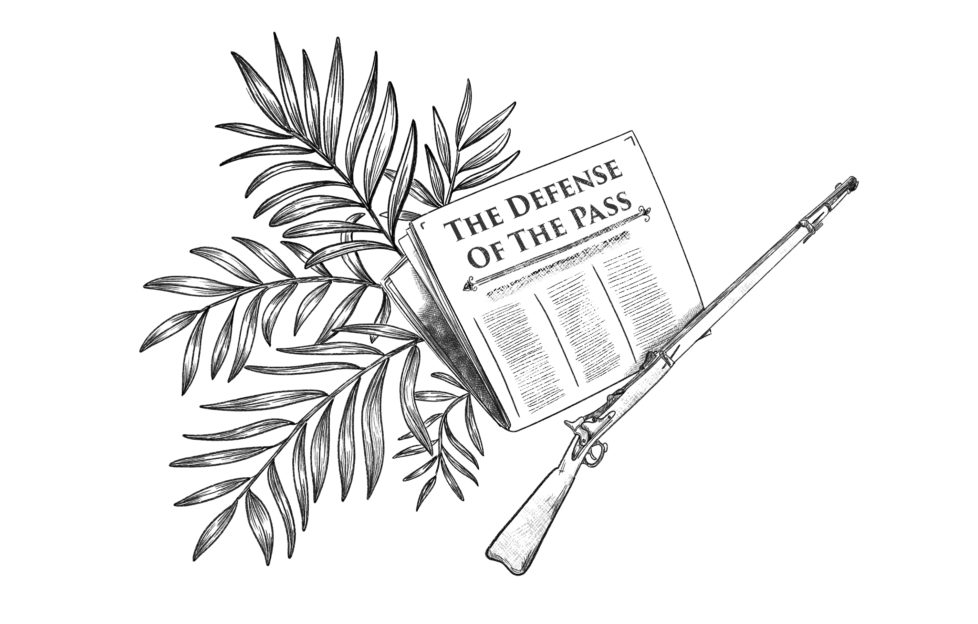
Our story this week is a little different to what readers might expect to find in the pages of the “Friend”.
“The Defence Of The Pass” was first published in October 1896, with the author using the pseudonym “Weathergage”.
It’s set during the Cuban War Of Independence — a conflict that was ongoing at the time of printing, and would last until 1898.
It’s quite hard-hitting, but nevertheless is an interesting look back at how the “Friend” addressed sometimes difficult current events.
Our Illustrations Ed Manon created this fantastic illustration especially for this story.
“There they go again — confound them; neither sleep nor food here,” said James W. Whitney, American journalist, as aching in every limb he rolled out of his lair among the damp bushes, for the bugles were ringing through the steamy depths of the Cuban forest, and echoing down its misty avenues from tree to tree.
Next moment his knee caught one of the tricing lines of his tattered shelter tent, and the crazy structure collapsed into a shapeless heap of dew-soaked canvas. The American rose stiffly to his feet and looked ruefully at the hard inflamed spots along arms and wrists, where the thirsty mosquitos had drawn his blood and left a tiny drop of venom in its place, wondering, as he rubbed his stiffened joints, how long it would be before he was down with rheumatic fever or raving in the malaria delirium.
Forty ragged insurgents, hungry-looking desperadoes, dressed in tattered white clothing and broad Panama hats, bustled about collecting dry wood to prepare a scanty meal — a sweet potato or two and a pint of coffee.
The camp lay in a great mahogany forest on the mountain side, the wide-girthed trunks and massy branches rising steeply one above the other, a sloping wall of dense foliage, festooned with trailing plants of brilliant hues; while here and there the early sunlight, filtering down between interlacing boughs, fell in quivering patches of gold on the opening cups of many flowers all sparkling with dew.
A short distance below, a narrow stony road, seamed by the downward rush of water in the wet season, ran along the face of the hill like a shelf, and beyond it the cliff fell sheer away down hundreds of feet, a horizontal strata of silvery mist veiling the valley below.
“Pah,” said the American, as he raked a half-raw sweet potato out of the ashes, and burned his lips trying to take a bite out of it too soon. “This is a nice kind of thing — starving here for a fortnight; daren’t stir since Martinez’s battalion cut us off from our friends. I could almost eat a boring crab.”
As he spoke he looked at a loathsome object with great hairy legs, like a bloated spider with a shell upon its back, which scuttled slowly sideways to the mouth of a hole, holding up a big mandible as if ready to make a vicious bite at an incautious hand, and then dived back into the steaming earth.
“Ola, Señor Wheetney,” said Lieutentant Carlos Vinoles, in command of the little band of hunted men, sauntering slowly by with his usual debonair manner and the inevitable picadura cigarette between his lips. “This is good for the digestion, is it not? You get thin, eh? Well, our friends, the Spanish troops, are not far off, and we shall know our fate soon.”
“Wish I’d never been such a fool as to mix myself up in a mess of this kind,” said Whitney, “malaria fever, rheumatic fever, dysentery, and starvation ad lib, all for nothing, you take your choice. Let’s see your rascals fall in anyway.”
Side by side the two men strolled towards where the rebels were assembling for morning parade, the gaunt, white-faced American presenting a marked contrast to the handsome, olive-skinned Cuban, with his dark eyes, curling hair, and sweeping moustache.
Forty men stood at ease among the trampled flowers, ragged and anxious-eyed, with the stamp of hard work and insufficient food on their thin faces. All, however, were chattering and laughing one with another, for neither hunger nor hardship can crush down the easy-going nature of the Latin races; while even in the Spanish troops of the line there is but little discipline. It is by no means unusual to see a sentry on guard seated cross-legged, with his rifle between his knees, and his clumsy kepi over one eye, smoking cigarettes.
As they descended the slope a rifle shot rang out through the forest, and the men sprang to attention, each one waiting in breathless suspense to see if their pursuers had tracked them there; but the hoarse voice of a sentry rose on the steamy air —
“All’s well, pass friend,” and a peasant, panting and hot, hurried up to the lieutenant, and raised his battered palm-leaf hat.
“Fly, señor, at once,” he gasped, “the troops burned the village last night, and even now they torture the peasants to find out where you are. I heard the pig of a captain say that you must have crossed the mountains, and they search for guides to find the pass. My house is smouldering ashes now, and my cattle they shot.”
“Thanks, señor,” said the lieutenant, bowing. “Gentlemen patriots,” — here Whitney wondered if the officer had any regard for the truth at all — “you hear this patriot’s report. These Spaniards who have driven you from your homes, they who have burned your villages and shot such unfortunate villagers as gave you food, and at times have done even worse than murder, follow you hard, and are close at hand. You have been hunted like wild beasts, but it is not good to hunt a beast too hard, especially if it be a Cuban bloodhound. This day we show our teeth.”
A savage growl ran along the line, and brown fingers tightened around the stocks of variously assorted weapons — Spanish service rifles, Winchesters from the United States, Martinis from England; while the journalist felt his heart beat faster as he glanced at the flashing eyes and hard-set lips, for he know he would see sharp work that day.
“Señor peasant, you will join us and strike a blow for the good cause this day, is it not?” said the leader, with his usual courteous calmness.
“Señor lieutenant,” was the savage answer, “I ask no better. My wife and daughter are in the hands of the Spaniards, my house and the fruit of many years toil goes up even now in fire and smoke and whether I live or die it matters not.”
“Give him a rifle and ten rounds, and follow me,” said Lieutenant Carlos.
A little later, the insurgents crouched among the wet brushwood, or behind the great mahogany trunks overlooking the road, and when each had sunk into his place as silent as the dead, there was neither sound nor sign to show that three and forty men, with wild passions of revenge and murder seething in their throbbing hearts, lurked in the dewy forest, gazing out through the leafy screen with quivering nerves and straining eyes.
“Nice kind of a picnic this for a peaceable citizen,” said Whitney, half aloud, looking ruefully at a huge revolver strapped round his waist. “Thou shalt do no murder — well, I won’t if I can help it; it’s none of my business anyway.”
The lieutenant, who understood a little English, overheard.
“Ah, you are droll, but silence now,” he said.
For a time there was not a sound to break the stillness of the forest, except the splash-splash of a distant cascade and the warm breeze sighing across the mahogany tops. The American felt his hands tremble as he fidgeted with his revolver butt and cartridge belt, while Lieutenant Carlos drew his red sash tighter round his waist, and looked longingly at his cigarette case.
Presently, as the sun rose higher and higher in the heavens, the mists below rolled away, and unveiled the wall of grey stone dropping away down into the valley, where fields of lush sugarcane rolled in blue-green waves, and the white and pink walls of sunny fincas rose from groves of oranges and guavas, surrounded by the chessboard-like squares of the vineyards.
At length, sparkles of light flashed out here and there among the foliage, a mile away down the curving road, and the insurgents set their teeth, for they had seen the glint of rifle barrel and bayonet too often to mistake it.
Then the glittering points disappeared again into the forest, and later the measured tread of marching feet drifted faintly up the breeze, and green uniforms wound out of the forest.
“Cazadores Canarios, two companies at least — poor Cazadores — I wish it had been the line,” said Lieutenant Carlos, and the American understood.
A ruthless conscription had been levied uping the distant Canary Isles, and the hardy hill peasants, a simple, peaceable people, had been torn from their homes and shipped off to Cuba in thousands after a few weeks’ training, there to die like flies from fever and dysentery; so that in Gomera and Hierro there was hardly a man left to till the barren soil, and whole families slowly starved.
The writer was once fortunate enough to be able to smuggle a few hinted wretches on board an English mail steamer bound for the River Plate at Santa Cruz, Tenerife, and he never did anything with greater pleasure in his life, for he had seen the horrible destitution caused by the conscription in the island of Gomera.
Nearer and nearer came the steady tramp-tramp and a cloud of dust rolled up ahead of the advance, and spread in a grey curtain down the line, as, marching carelessly in open fours, the Spanish troops plodded up the incline.
“Silence there, men, for your lives,” said the lieutenant sternly, in a low voice, and a few moments later the foremost files approached the ambuscade, a little plump captain with spectacles mopping his streaming forehead as he struggled along at their head.
Ignorant of the fact that there were three and forty pairs of eyes fixed upon his rotund person in deadly hate, he leaned against a mahogany trunk and took off his kepi.
“Ola Morales, these dogs hide well,” he said to a lanky lieutenant, “but it will be a bad hour for them when they feel our whip. We smoked out their friends below, eh?” and he pointed away across the valley towards a spiral of blue smoke rising from the ruined homesteads, “and La Señorita, the one with the eyes, ah, you lucky dog,” and he grinned with a wicked leer in his greasy face, while the hand of Lieutenant Carlos curled lovingly round his revolver butt.
Meantime, a ragged peasant gnawed his lip, and pressed his hand instinctively upon his breast, as though to still his beating heart, while in every syllable which fell so clearly upon his ears he heard the ruin of his home.
Tramp-tramp-clinketty clank, the heavy shoes rang upon the stones, and the bayonets rattled in their scabbards, as, swinging easily along, the Cazadores went by; then the voice of a sergeant rang out through the dust.
“Halt, there is something across the road.”
The American laughed softly. At his suggestion the rebels had carried off sundry reels of barbed wire from a plundered plantation, and snugly mixed among brushwood and branches this lay across the road.
Now the Cazadores were about one fourth drilled, so at the word “halt” the middle fours blundered in among those in front, and the rear guard, who had not heard the order, stumbled into the middle of the confusion.
“Pigs and brutes of islanders,” screamed the little captain, dancing in his rage with true Spanish impetuosity.
He got no further, for the voice of the insurgent leader rose above the din.
“Fire!” and from every bush a rifle spluttered, or an overloaded shotgun flashed; while the sharp rip-rap of the Winchester repeaters rattled and echoed from rock to rock.
This is part one of “The Defence Of The Pass”. Part two will be included in next week’s Fiction Newsletter.
Click here to read more of our fantastic Fiction content.
Click here to delve into our dramatic Daily Serial.


